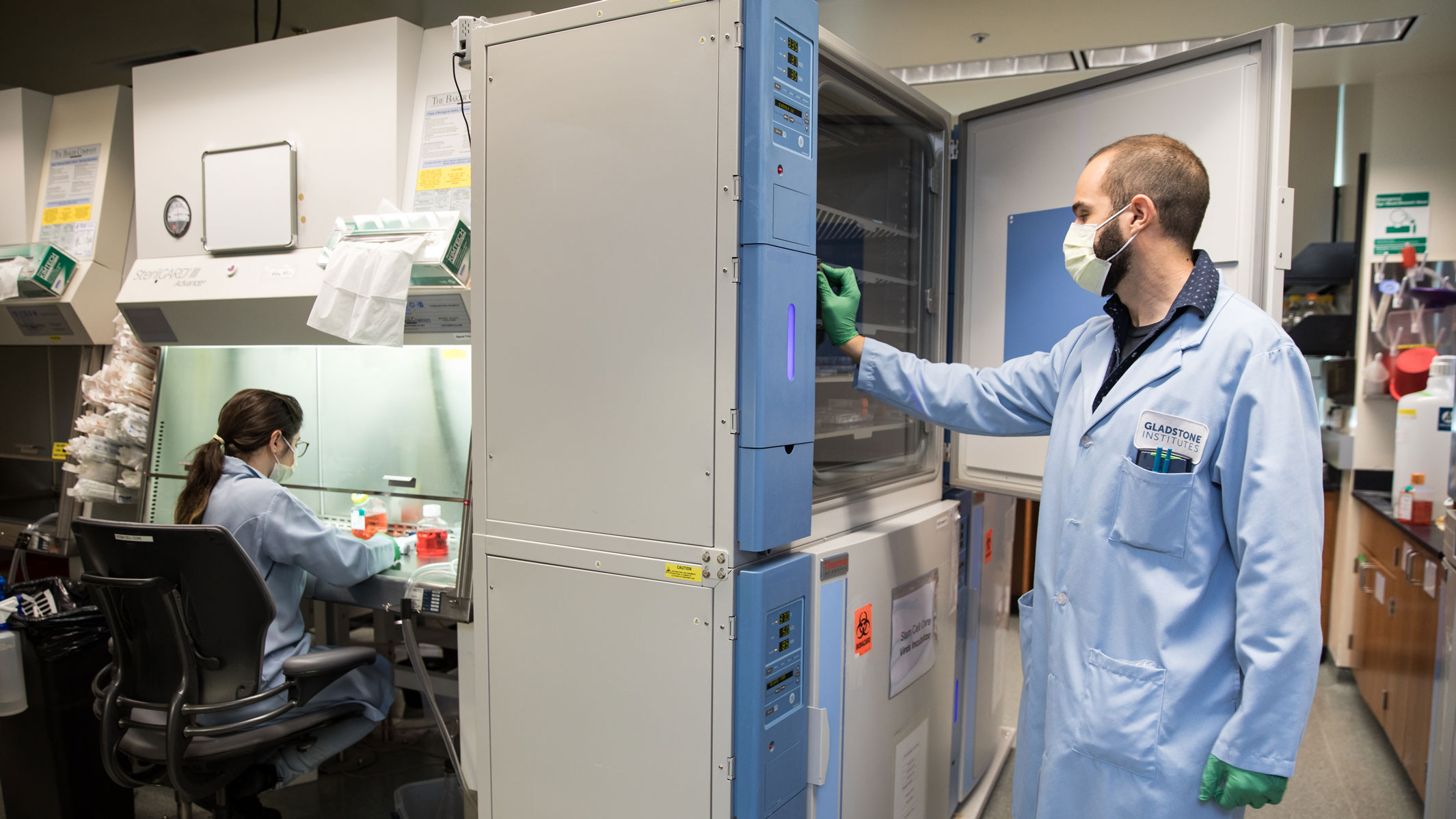Kiichiro Tomoda’s lab specializes in stem cell biology and regenerative medicine. His research focuses on how environmental signals impact the ability of human induced pluripotent stem (iPS) cells to grow and differentiate into specific cell types. He also studies fundamental aspects of cell biology, such as protein synthesis or the maintenance of specialized intracellular units called organelles, to improve the quality of iPS cells. One of Tomoda’s research goals is to model human disease using tissue generated from human iPS cells. These models are vital for studying the biological processes underlying conditions such as neurodegenerative diseases, heart diseases, and infectious diseases.
Disease Areas
Areas of Expertise

Lab Focus
Research Impact
Tomoda was part of Shinya Yamanaka’s lab when the team discovered ways to turn adult human cells into induced pluripotent stem cells. Human iPS cells provide the research community with an infinite source of stem cells that can be turned into any cell type in the body, without the technical and ethical limitations of stem cells derived from human embryos.
Since this seminal discovery, Tomoda’s work has focused on improving the quality of human iPS cells. He is particularly interested in the epigenetic modifications that restrict the differentiation potential of stem cells, thus limiting their applications for research or clinical uses. More recently, Tomoda has been investigating fundamental biological events, such as protein synthesis and the maintenance of a specialized intracellular unit known as small organelles, in iPS cells. Understanding these cell biology events, along with the epigenetic regulation of stem cells, helps Tomoda’s team harness stem cell technology toward applications such as regenerative medicine and disease modeling. In particular, Tomoda has combined CRISPR gene editing with human iPS cell technology to model human diseases and used these models for drug discovery.
Professional Titles
Research Investigator, Gladstone Institutes
Associate Professor, Center for iPS Cell Research and Application, Kyoto University, Japan
Bio
Kiichiro Tomoda, PhD, is a research investigator at the Gladstone Institute of Cardiovascular Disease and associate professor at the Center for iPS Cell Research and Application, Kyoto University, Japan.
A native of Japan, Tomoda earned a bachelor’s degree at Osaka University and a PhD in molecular biology at the Nara Institute of Science and Technology in Nara, Japan, where he also conducted his postdoctoral training and became an assistant professor in 2003. Tomoda joined Gladstone as a research scientist in 2007 and trained for 3 years in stem cell biology as a California Institute for Regenerative Medicine Scholar, before becoming a staff research investigator at Gladstone in 2013. He became a junior associate professor in the department of pharmacology at Osaka Medical College in Osaka, Japan, in 2016, and an associate professor in 2019. In March 2020, he joined the Center for iPS Cell Research and Application, Kyoto University in Kyoto, Japan, where he is an associate professor.
Honors and Awards
2009–2012 CIRM Scholar Fellowship, California Institute for Regenerative Medicine
2000–2003 Postdoctoral Fellowship, Japan Society for the Promotion of Science
2000 NAIST Award, Nara Institute of Science and Technology, Japan
Publications
Contact
Kiichiro Tomoda
Email

